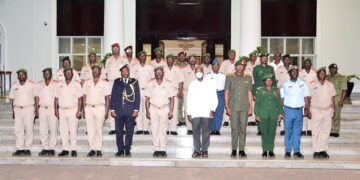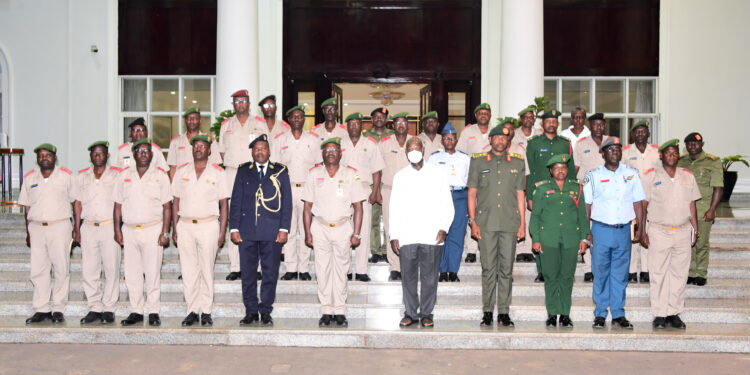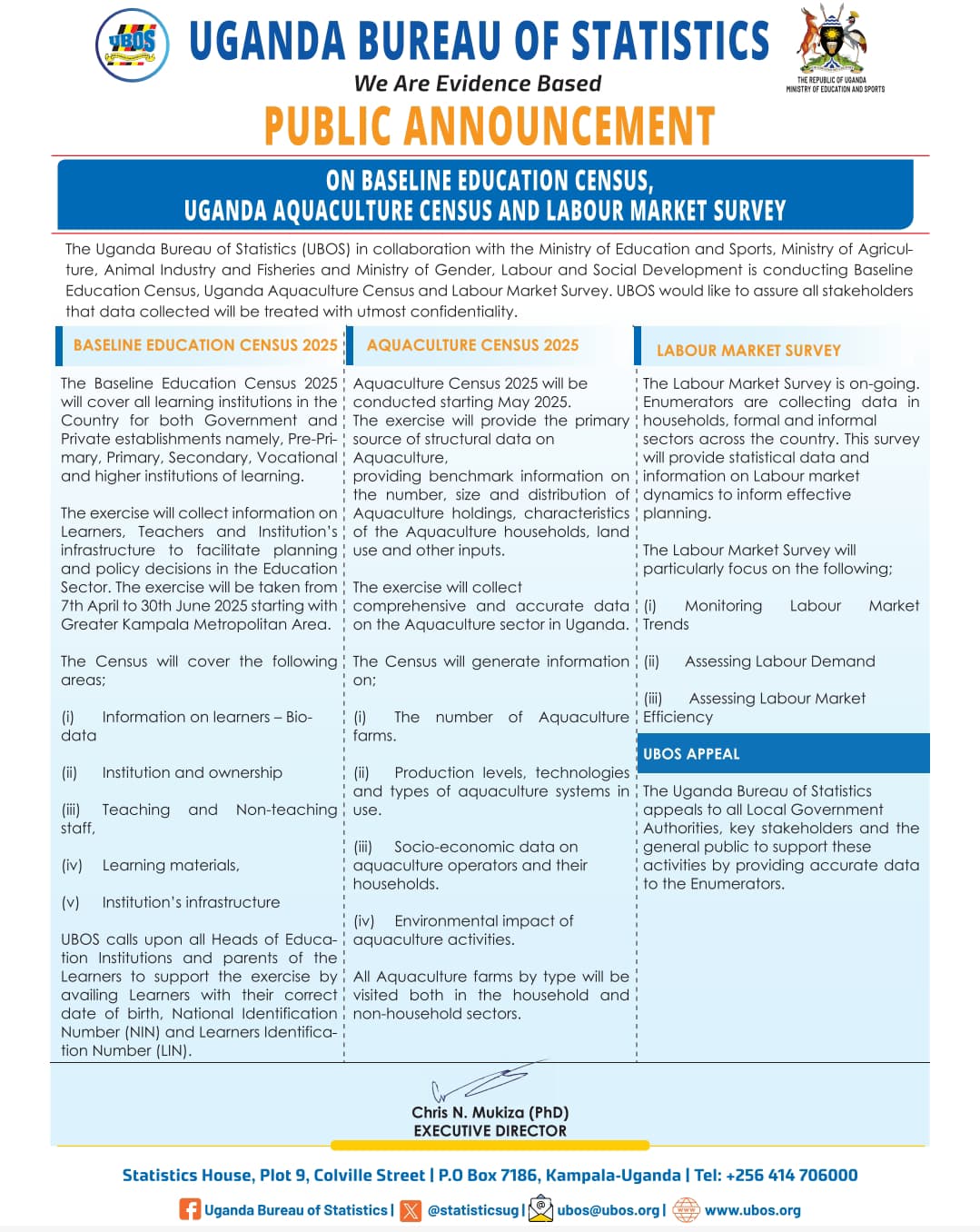Entebbe — President Yoweri Kaguta Museveni has called on African military and political leaders to abandon identity-based politics and embrace ideology-driven leadership that fosters unity, peace, and economic transformation.
Speaking at State House Entebbe during a meeting with senior military officers and students from Burundi’s Senior Command and Staff College, President Museveni emphasised that Africa’s stagnation has largely been due to a flawed political approach rooted in tribal, religious, and racial divisions.
“Politics is like medicine,” he said. “If you make the wrong diagnosis, you will prescribe the wrong treatment. Many post-independence leaders misdiagnosed Africa’s problems by focusing on identity—asking what tribe or religion someone is—instead of addressing the real issue: why our people remain poor.”
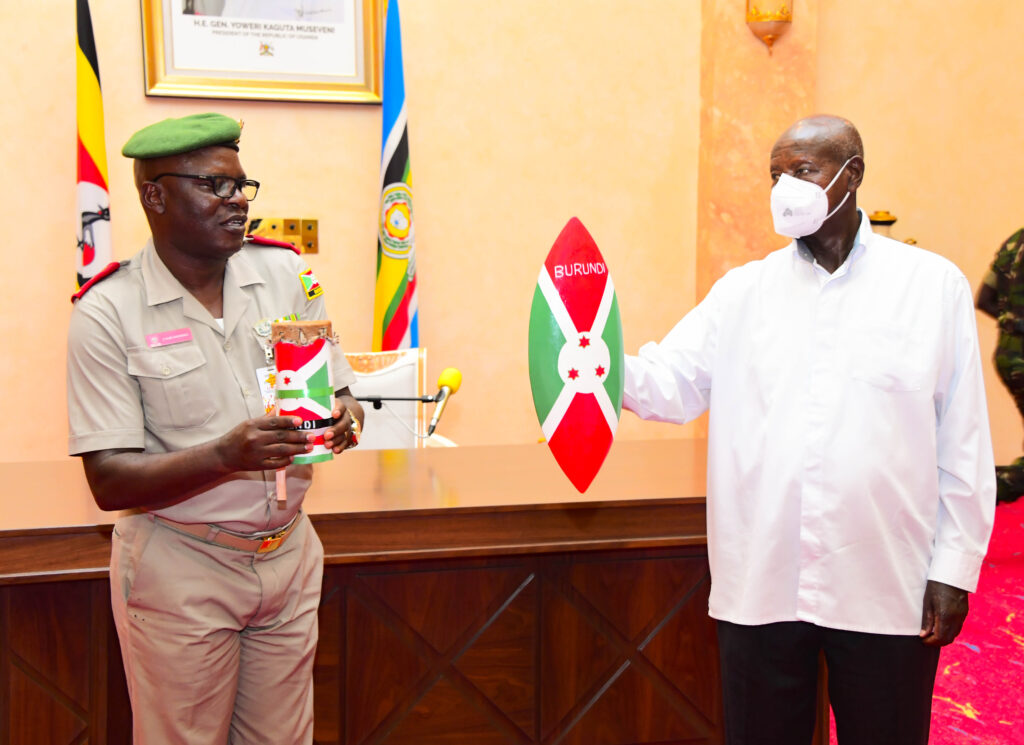
The 26-member Burundian delegation, led by Col Jonas Sabushimike, visited Uganda to learn from its political and socio-economic journey under the National Resistance Movement (NRM).
Reflecting on his political formation in the 1960s, President Museveni said he and his contemporaries rejected identity politics and instead pursued a structural understanding of Uganda’s challenges. This led to the formulation of three historical missions that have since defined NRM’s agenda: national prosperity, strategic security, and African integration.
“We asked: how can all Ugandans—Baganda, Banyankole, or others—become prosperous? The answer lies in production. You can’t prosper by begging; you must produce a good or service and sell it,” he said.
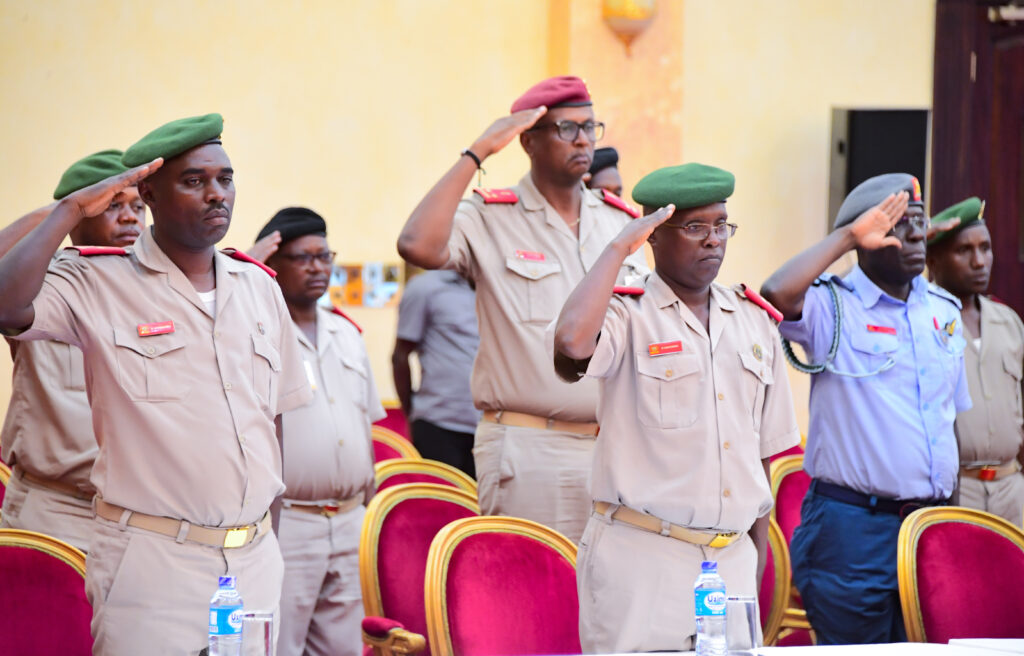
He pointed out that tribalism, far from aiding progress, obstructs economic development. “If I have bananas and milk, and my neighbour has the same, who buys from whom? You need broader markets. That’s why we embraced patriotism—not just as a sentiment but as a strategic necessity.”
From that ideological base, Museveni outlined the NRM’s four key principles: Patriotism – to unify the nation and enable internal trade; Pan-Africanism – to access wider regional markets; Socio-economic transformation – to shift citizens from subsistence to commercial production; and Democracy – to ensure accountability and people-centered governance.
“These principles support our historical missions and have guided us through five phases: recovery, expanding the money economy, diversification, value addition, and now, the transition to a knowledge economy,” Museveni said.
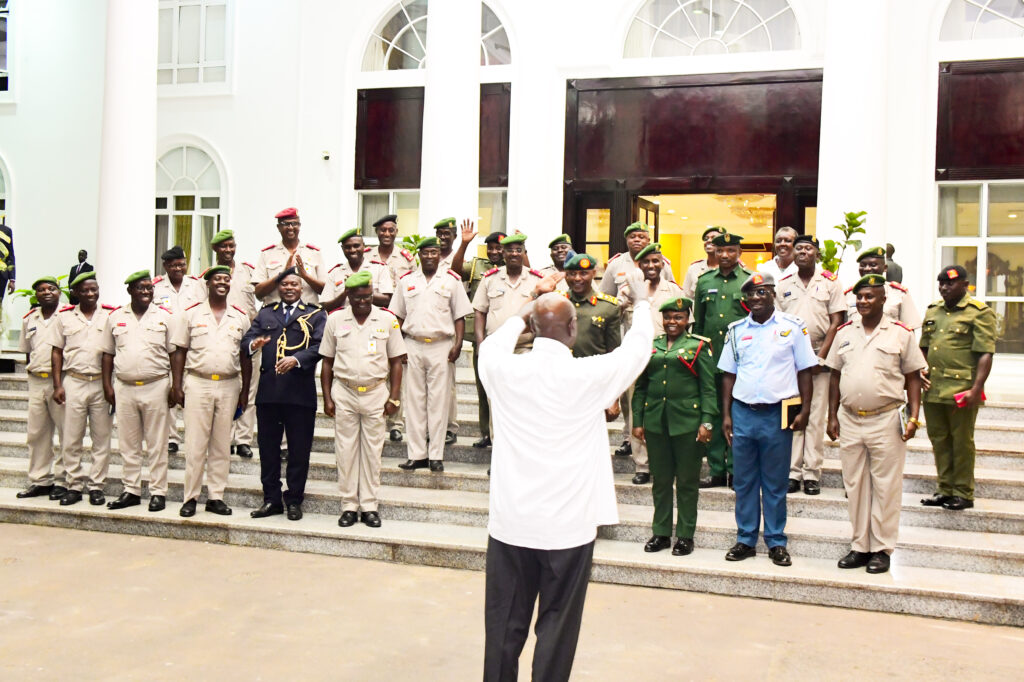
He encouraged the Burundian officers to critically reflect on these principles and adapt them to their national context, noting that ideological clarity is essential for both military command and national leadership.
Brig Gen Saad Katemba, UPDF’s Director of Training and Doctrine, welcomed the delegation and reaffirmed the strong bonds between Uganda and Burundi. He said the visit, themed “Harnessing Regional Cooperation for Development and Sustainable Peace,” provided a valuable platform for mutual learning.
“This is more than a study tour,” Brig Gen Katemba said. “It is an opportunity to share experiences, strengthen military diplomacy, and deepen our collective commitment to regional peace and transformation.”
Since arriving on April 5, the delegation has visited key institutions, including the Ministry of Defence and the Uganda Senior Command and Staff College, holding discussions on ideology, regional security, and peacebuilding.
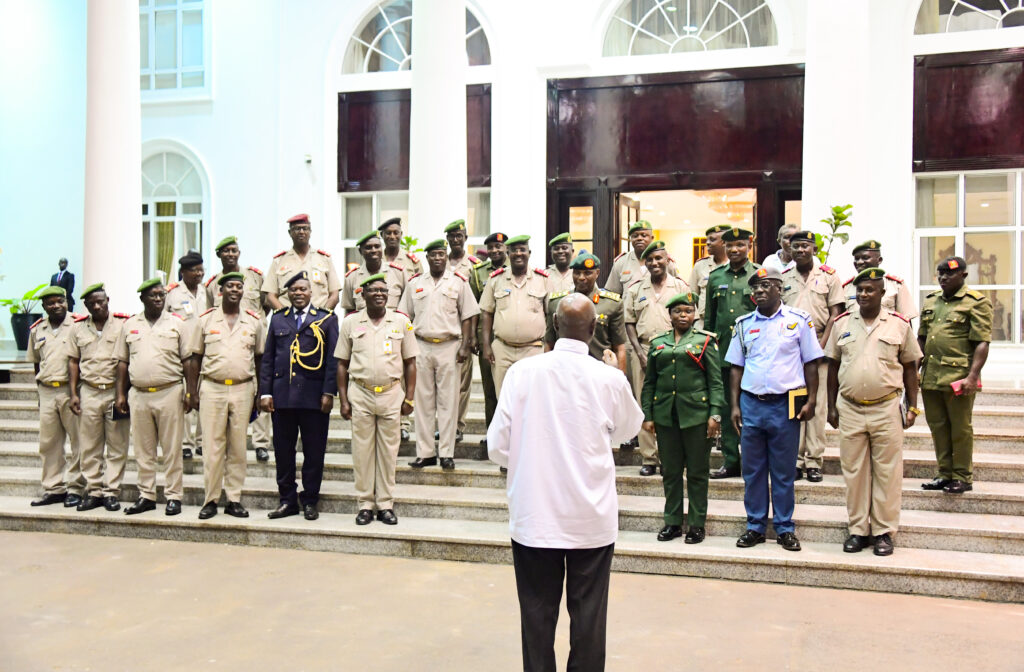
Col. Sabushimike expressed gratitude for the reception and praised Uganda’s leadership in championing regional stability and socio-economic progress.
“We chose Uganda because it stands out as a beacon of Pan-Africanism and a model of peacebuilding and economic transformation,” he said. “The wisdom shared by President Museveni—especially the rejection of identity politics in favor of patriotism and ideological clarity—will shape our officers’ future leadership.”
He concluded by affirming that the lessons learned would contribute to sustainable peace and prosperity in Burundi and across the continent.
